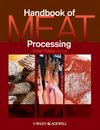Ted Seger, president and part owner of Farbest Foods Inc. and past chairman of the National Turkey Federation (NTF), told the Subcommittee on Livestock, Dairy and Poultry that it has become clear, from the minute the government chose to subsidize corn as an energy source, that livestock and poultry interests have taken a back seat to the ethanol industry.
Since 2005, when the Renewable Fuel Standard (RFS) was created, corn prices have risen 64 percent. With feed accounting for 70 percent of the cost of raising a turkey, and corn the largest feed ingredient, corn availability and pricing are often the largest determining factors for companies when deciding how many turkeys to produce. “Many factors play a role in corn pricing, however the only one that the federal government can ultimately control is the one that it put in place back in 2005 and expanded in 2007,” Seger said.
“While no one item is a silver bullet to fixing the low corn stock problem, we must do something to protect livestock and poultry producers from excessive high corn prices due to the fact that the government has mandated the use of half of the corn supply in the nation’s fuel supply.”
Seger told the committee that the Volumetric Ethanol Excise Tax Credit, or blender’s credit, is not required to support ethanol production and should be allowed to expire at the end of the year. He also said that the turkey industry is looking to reform the existing ethanol policy and asked that there be a safety net that ensures the availability of corn and reduces price volatility in the future. The RFS should be reevaluated by creating a policy that provides practical, automatic and meaningful protection against a poor corn harvest.
Several other industry representatives also testified before the subcommittee.
Steven Roger Meyer, Ph.D., president Paragon Economics, Inc., noted that subsidized ethanol has meant record high corn prices, record-high costs of production for meat and poultry, resulting in lower per capita meat and poultry output and, finally, record-high meat prices. He laid out what this has meant in terms of dollars and jobs for the U.S. pork industry.
“The U.S. pork industry lost $6 billion in equity from 2007 through 2009 but improved profitability did not stop the exodus of pork producers in 2010,” Meyer said in his prepared testimony. “From 2007 through 2010, 6,350 hog operations exited the industry and 84 percent of them held 500 of fewer hogs in inventory. During that same five years, 30,510 cattle and calf operations and 24,350 beef cow operations exited the industry. The vast majority of these closures, too, was among small operations.”
While there are many critical issues impacting the viability of the chicken industry, Michael Welch, president and CEO of Harrison Poultry in Bethlehem, Georgia, suggested at the hearing that no issue is more critical than having an adequate supply of grain and oilseeds at reasonable costs, and suggested that the ethanol mandate be revisited.
“The rules of the game should be re-balanced and the playing field should be leveled to permit chicken producers and other animal agriculture producers to more fairly compete for the limited supplies of corn this year and in the next few years,” said Welch. “Included in this effort must be a safety-valve to adjust the Renewable Fuels Standard when there is a shortfall in corn supplies.”
Randy Spronk, a pork producer and managing partner of Spronk Brothers III LLP and Ranger Farms in Edgerton, Minnesota, took issue with proposals to increase ethanol blend levels.
“Where mandates and subsidies are allowed to exist, it is unconscionable that long-established laws would be ignored to drive greater ethanol production,” Spronk said in his remarks. “But this is the path the Obama administration has taken in response to demands to allow an increase to 15 percent (E15) from the current 10 percent in the amount of ethanol that can be blended into gasoline.”
Nearly all the members of the Subcommittee agreed with the views and concerns expressed by the witnesses. Congressman David Scott (D-GA) asked the panel how high the price of corn would have to be to force them to stop their operations. Welch said that prices are already too high and cannot be sustained in the long term. If the price of corn remains this high, he stated that poultry prices would have to raise 20 percent to break even. Congressman Reid Ribble (R-WI) asked what changes to federal policy the panel would suggest to help this problem. They all agreed that reforming the Renewable Fuel Standard is the only way to end the high demand on corn.\More information and complete copies of witness’ testimony are available at http://agriculture.house.gov/hearings/hearingDetails.aspx?NewsID=1450.
Sources: National Turkey Federation, American Meat Institute



Report Abusive Comment